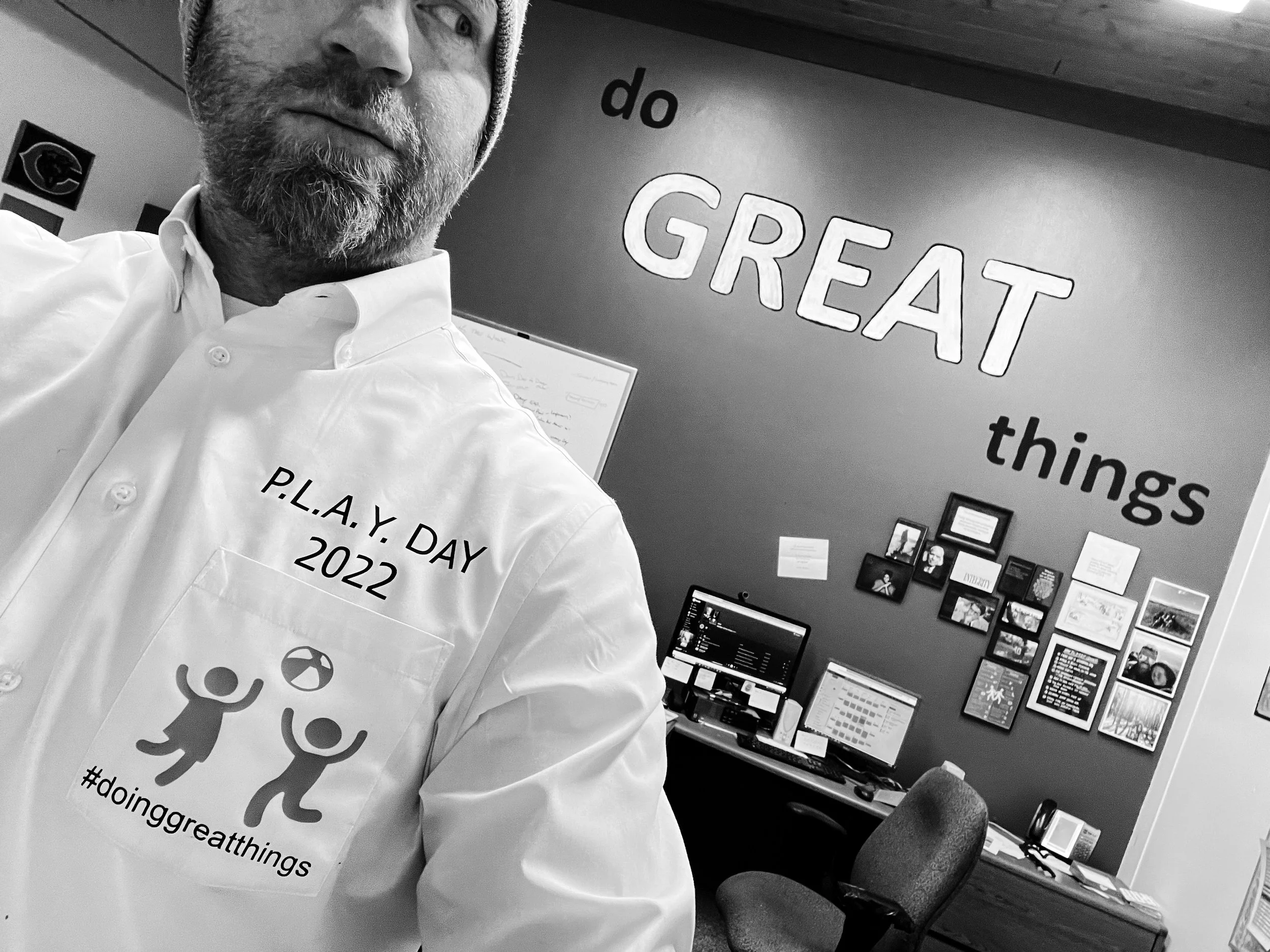At times, life gifts us themes. Most often, they come at the appropriate time. Here is been my gifted theme this week. And yes, it has come at the appropriate time.
Monday:
In a conversation with a mentor from Texas (shout out to you, Mr Jeff Springer!), he referenced this scene from the movie Patch Adams:
"Look at me," the old man says. "If you focus on the problem, you can't see the solution. Never focus on the problem, look at me!" When dealing with struggling students or adults, we must choose to "see what everyone else chooses not to see." The person.
Tuesday:
This quote came across my Instagram feed: "If I wanted to ruin you, I would convince you, over a long time, through disappointment and empty promise, that something you think or something you do is more important than the people in your life" - Justin McRoberts
For whatever reason, the people in our lives are the people in our lives. And they are more important than any thing or opinion we might have. For as Justin McRoberts also says, "The person you are talking to is more important than the thing you are talking about. Every time.”
Wednesday:
In a Zoom conversation with an old teacher buddy of mine (lookin at you, Mr Kasey Schurtz!), he said, "Love should look like discipline. And discipline should look like love."
Holding ourselves and others accountable is often uncomfortable, but if done in love (holding their interest above our own), it is necessary, good, and true. For as my mother made me memorize as a child, "Love is patient, love is kind. It does not envy, it does not boast, it is not proud. It does not dishonor others, it is not self-seeking, it is not easily angered, and it keeps no record of wrongs. Love does not delight in evil but rejoices with the truth. It always protects, always trusts, always hopes, always perseveres.
Love never fails ."
And the same should be said about discipline.
As educators and parents, we are entering the thick and heavy season of academic and change. Our students and children will be growing and learning a TON these next few weeks and months. Which is GREAT! Amidst it all, however, may we never forget the PEOPLE who are around us - staff, students, family members - for they are the reason WHY we are here.
And I have needed that reminder.
This past week, when my schedule has been more full than the minutes allow, when I run from one dumpster fire to the next, from meeting to meeting with side conversations along the way, and as I try and keep a building full of hearts and minds safe and headed in the right direction - all while the needs of family and home are pulling and calling - it is so unbelievably embarrassing how quickly I fall into the trap of Get. Stuff. Done!
And in doing so, I can often forget the people around me.
The one struggling with the weight of a sick parent and hard decisions ahead.
The one wrestling with mountains upon mountains of change, and the struggles it creates.
The one who needs a quick check in and “how you doing? You okay?” but also the brief moment of sitting and actually listening and not anxiously checking the time or text messages.
The one who needs me to sit on the couch and hear her woes and fears of a new season because really, more than anything, she is scared and insecure and doesn’t know or understand her true strength.
And the list goes on and on.
This week, the theme of people has been strong and a bit heavy handed. Which probably means I need the reminder. And more importantly, that I should listen.
Choose to see what others choose not to: the people behind the problem.
Place people above what I think and what I do.
In all things - especially in discipline - choose to love the people who have been placed in my life.
Every time.
That’s what I’ve been thinking about this week.
#doGREATthings!
Give. Relate. Explore. Analyze. Try.
For more on . . .




